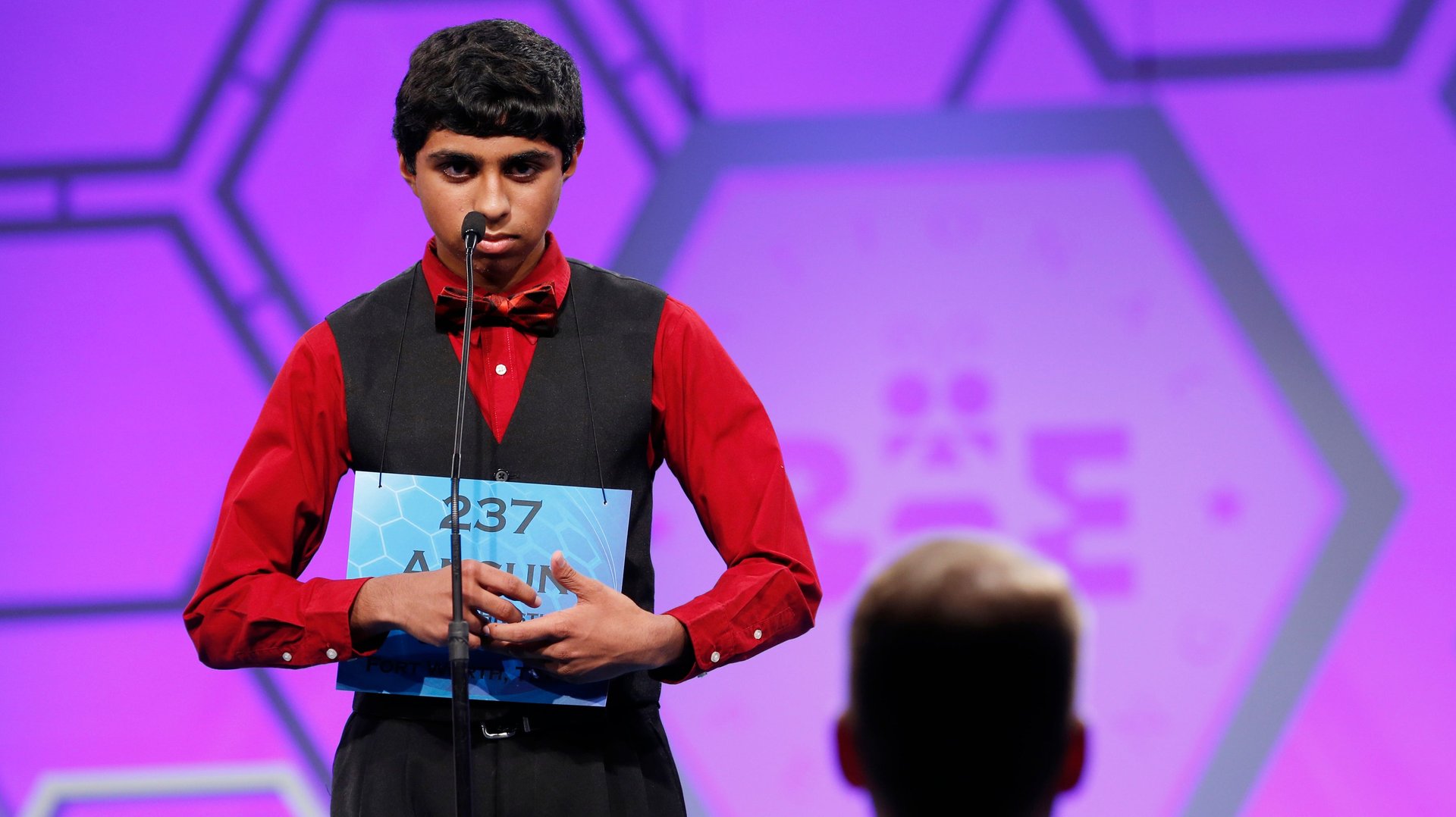Why is the US supporting all but its most talented students?
Today, the very best athletes compete in the Olympics. The most dramatically talented people compete for our attention in theaters and on Netflix. And the smartest people—the Taylor Wilsons, the Albert Einsteins, and the Elon Musks—compete to invent something that will change the world. These remarkable few strive for the pinnacles of excellence.


Today, the very best athletes compete in the Olympics. The most dramatically talented people compete for our attention in theaters and on Netflix. And the smartest people—the Taylor Wilsons, the Albert Einsteins, and the Elon Musks—compete to invent something that will change the world. These remarkable few strive for the pinnacles of excellence.
But imagine a future society where none of that happens. Instead, by the year 2081, everyone is literally made equal.
As Kurt Vonnegut, Jr. wrote in Harrison Bergeron, “Nobody was smarter than anybody else. Nobody was better looking than anybody else. Nobody was stronger or quicker than anybody else. All this equality was due to the 211th, 212th, and 213th Amendments to the Constitution, and to the unceasing vigilance of agents of the United States Handicapper General.”
* * *
We enjoy celebrating the triumphs of top athletes such as Usain Bolt and performers like Justin Bieber and Viola Davis. The success of TV shows like Heroes and of movies like Spider Man and X-Men clearly reveal our fascination with people possessing special powers or gifts. Yet we are not always comfortable in celebrating those who possess intellectual gifts. Perhaps this is because we feel that attending to the students who are the very best means we are neglecting everyone else and reducing equity?
Paradoxically, with near zero funds allocated for advanced learners by the federal government, it’s clear that we are supporting everyone except our most talented students.
Education policy scholars Frederick Hess and Andrew Rotherham note the tension between the ideals of equity and excellence, explaining that, “Historically, there always has been an unavoidable tension between efforts to bolster American “competitiveness” (read: boost the performance of elite students, especially in science, math, and engineering) and those to promote educational equity. Champions of particular federal initiatives tend to argue that the two notions are complementary, but history shows that the ascendance of one tends to distract from attention paid to the other.”
Vonnegut’s future is obviously an extreme version of this portrait of equity—a society where everyone is not actually the same, but where everyone is forced to be the same. Attractive people must wear masks. Great athletes are literally weighted down. And anyone who is about to have an intelligent thought is interrupted by a terrible noise sounding through a device in his or her ear.
* * *
We live in a time where equity has taken ascendance over the pursuit of excellence, at least in public education. With the exception of occasional stories like Taylor Wilson’s intellectual prodigies are generally left to fend on their own. He was lucky to have parents who had the resources and time to make sure his talents were fully developed. Many other potential Taylor Wilsons, especially those from disadvantaged backgrounds, are not as fortunate. When we focus exclusively on equity, we lose out on excellence. We lose minds and corresponding innovations.
If we reframe how we think about equity as helping each student learn at the pace at which they are naturally functioning—a free, appropriate education for all, and not just for individuals with disabilities—then this conceptualization of equity, in fact, also promotes excellence. When a gifted kid grows up to be a gifted scientist and develops the cure for a disease, discovers a new energy source, or invents the next life-changing program or device, he or she will have created something for everyone.
It is now 2015, and hopefully our future will never be like the one Vonnegut imagined. He wrote Harrison Bergeron in 1961, during the Cold War and just after the Soviet Union launched Sputnik. Clynes wrote the uplifting story of a kid who made it. Vonnegut wrote a story warning us about how our society might look should our cultural values shift too far in one direction.
If we want to ignite the gifted education renaissance that Clynes is advocating for, we should continue to support students at every educational level by ensuring we invest in all of them—this includes especially talented students from disadvantaged backgrounds who currently have little support due to a near zero federal government K-12 educational allocation. We need educated citizens from all segments of society and the goal of education should be to help everyone to be their best.
Just as we openly celebrate those with athletic talent and “good looks,” we should also openly celebrate those with intellectual talent. We should make things like the MATHCOUNTS National Competition or the Scripps National Spelling Bee as revered as shows like America’s Got Talent and Dancing With the Stars, or even the Super Bowl. As gifted athletes and actors entertain and inspire millions, the gifted scientist or doctor also touches many, many lives. By truly valuing and supporting our gifted students, not only will we help each student pursue excellence and personal fulfillment in whatever field they choose, we will ultimately be helping our economy and society reach its full potential.